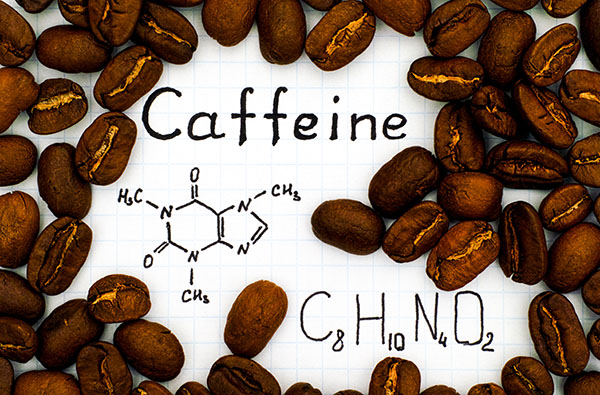
Mention caffeine and the first thing that often comes to mind is a cup of coffee. Often, a cup of joe is enjoyed in the morning. However, caffeine does so much more than keeping one awake – and here are some of its other health benefits.
Caffeine contributes to pain relief
A brief literature review published March 2016 in Anesthesiology and Pain Medicine found that caffeine helps address migraine when used as an adjuvant treatment. The paper's authors noted that caffeine acts on adenosine receptors that are involved in pain sensations, and the substance is present in some over-the-counter (OTC) pain medications. It noted that caffeine possesses potential to address hypnic headache and postdural puncture headache. (Related: 5 Caffeine FACTS and 5 caffeine MYTHS.)
Caffeine helps promote urination
According to a 2010 study published in Urology Annals, caffeine is a diuretic – something that promotes increased urination and excretion of waste materials in the body. The paper stated that caffeine at 4.5 mg/kg prompted increased urination, leading its authors to note that the substance can "promote early urgency and frequency of urination." However, they warned that those with symptoms of lower urinary tract disease should be cautious when consuming foods with caffeine – if not avoiding them altogether.
Caffeine affects blood vessels differently, depending on their location
A 2017 piece by Dr. Omar Haqqani of Vascular Health Clinics in Michigan explained that caffeine affects blood vessels differently, depending on where they are located.
Caffeine causes the blood vessels in the head and neck to narrow, which helps in headaches. The rush of blood to the brain causes swelling and pressure, with the pressure translating to the pain caused by a headache. Caffeine's vasoconstrictive relieves pressure and eliminates the pain.
Meanwhile, blood vessels in other parts of the body benefit from caffeine as it widens them. This allows greater blood flow, particularly in the muscles and the lungs. This vasodilative effect of caffeine results in increased muscle performance and improves breathing.
Potential negative effects of caffeine
Caffeine occurs naturally in more than 60 plants, with coffee beans being the most ubiquitous source. But aside from coffee beans, caffeine is also present in cacao pods used to make chocolate products and kola nuts used to flavor some soft drinks, not to mention tea leaves.
Synthetic caffeine also exists, and is often used as an additive to some food items and medicines. Pain relievers, cold medicines, OTC medicines for alertness, "energy-boosting" candies and energy drinks make use of synthetic caffeine at times.
However, caffeine also has negative effects on the cardiovascular system – most especially when consumed in large amounts. Excessive caffeine consumption can cause anxiety and difficulty sleeping. It is also possible to develop caffeine tolerance; this means that larger and larger amounts are needed to achieve the same effect.
Caffeine can also raise the heart rate and trigger palpitations, due to its effect on the adrenal glands that produce the stress hormone adrenaline. When faced with danger or fear, adrenaline is produced in preparation for the body's fight or flight response. This results in increased breathing and heart rates.
These caffeine-triggered adrenaline releases – particularly large amounts of it for long periods – can weaken the heart muscle and increase the risk of a heart attack over time. Those with diabetes are susceptible to this. Moreover, excess caffeine can cause high-blood pressure or make it worse in some that already experience it.
Regular use of more than 600 mg of caffeine might cause the short-term effects listed above. Long-term effects at this level may include chronic insomnia; constant anxiety; depression; gastrointestinal issues; headaches; irritability; jitteriness; muscle tremors; restlessness; sleep problems and possible cardiac issues. Therefore, enjoy -- in moderation.
Check out Health.news for more stories about the benefits (and possible risks) of caffeine.
Watch this video about caffeine's benefits and side effects.
This video is from the Holistic Herbalist channel on Brighteon.com.
More related stories:
Caffeine withdrawals can be overcome by the power of the mind.
Long-term consumption of caffeine may worsen effects of Alzheimer’s.
How to beat caffeine addiction and lessen withdrawal symptoms.
Sources include:
Please contact us for more information.




















